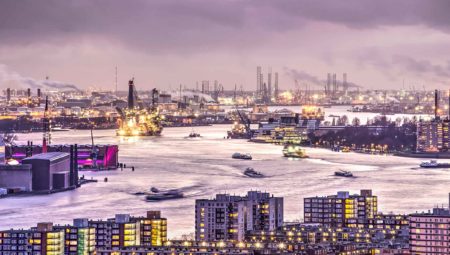The facility will be the first of its kind in Europe to provide a sustainable alternative solution for non-recyclable wastes, converting waste plastics and other mixed wastes into new raw materials. It will also be twice as big as Enerkems commercial-scale plant in Edmonton, Canada.
The initial investments, which cover detailed engineering, the setup up of a dedicated joint venture and completing the permitting process, will be worth €9 million. The consortium aims to take the final investment decision (FID) for the estimated €200-million project later in 2018 and has appointed Dutch Rabobank as the lead advisor for the financing process.
Clean methanol
The facility will be built within the Botlek area of the Port of Rotterdam using Enerkem’s proprietary technology, and will convert non-recyclable mixed waste, including plastics, into syngas and then into clean methanol for use in the chemical industry and for the transportation sector. Today, methanol is generally produced from natural gas or coal.
Air Liquide and AkzoNobel will supply the required oxygen and the raw material hydrogen. AkzoNobel also acts as a customer for the methanol. Marco Waas, Director RD&I at AkzoNobel Specialty Chemicals, who leads the consortium’s Steering Committee says “The agreement comes at a very appropriate time given the current challenges in plastics recycling in Europe. We can convert non-recyclable waste, into methanol, an essential raw material for many everyday products, including low carbon transportation fuel. Not only can this be used in the existing supply chains and replace fossil sources, but it also avoids CO2 emissions otherwise produced by burning waste.”
The facility will convert up to 360,000 tons of waste into 220,000 tons (270 million litres) of ‘green’ methanol. As an equivalent, this represents the total annual waste of more than 700,000 households and represents a CO2 emission savings of about 300,000 tonnes.
Government support
Realization of the project is supported by the Dutch Ministry of Economic Affairs & Climate policy, which have agreed to develop mechanisms and regulation that will help bring this new technology to full scale to support the low-carbon transition of the Dutch economy. The waste-to-chemistry project is also supported by the City of Rotterdam, the Province of Zuid-Holland and InnovationQuarter, the regional development agency.



